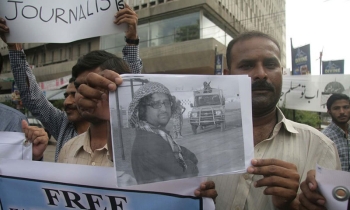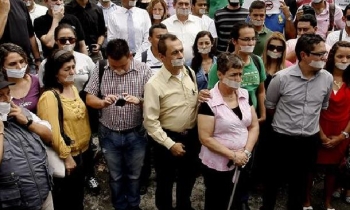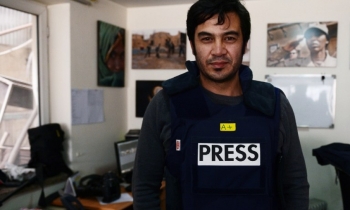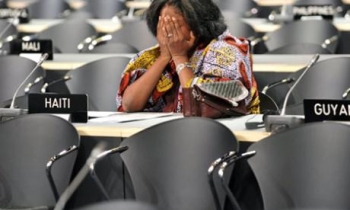Nearly half the people in the United States believe the press is unfair to the Bush Administration, according to a Pew Research Centre survey. In fact, an increasing number of Americans believe the press is "too critical of the administration".

Republican perceptions of press coverage of Bush have changed dramatically. Just a quarter of Republicans think news organisations are treating the Bush administration fairly, down from 50 per cent who said the media treated the administration fairly in 2003 and 58 per cent in 2001, shortly after he assumed office.
Republicans were far more positive about press coverage of the Clinton administration during the Lewinsky scandal of 1998; not surprisingly, most Democrats (54 per cent) felt the press was unfair to the former president at that time. Nonetheless, comparing the reactions of partisans to press coverage of the two presidents, more Republicans see the press as unfair to Bush than did Democrats (by 63 per cent to 54 per cent).
A similar pattern is seen in public attitudes toward whether the press has been too critical or not critical enough of the Bush administration's policies and performance. Currently, 34 per cent think the press is handling coverage of the administration "about right," while 32 per cent say it is too critical of the administration, and 28 per cent feel it is not critical enough. That represents a major change since July 2003, when nearly half (48 per cent) believed the coverage of the Bush administration was about right.
Much of the shift has come among Republicans. Nearly two-thirds of Republicans (64 per cent) see the press as too critical of Bush's policies and performance, up from 46 per cent in July 2003. Democratic views have been more stable; a plurality of Democrats (45 per cent) say coverage of the Bush administration has not been critical enough (up from 38 per cent in 2003).
Overall opinions of the news media's role as a watchdog on politicians has remained stable, despite growing sentiments among Republicans that the press is unfair to Bush. Fully 62 per cent of the public believes that by criticising political leaders, news organisations keep them from doing things that should not be done, while only 22 per cent think such criticism keeps leaders from doing their job.
There are broad political differences in attitudes toward the press's watchdog role. Roughly seven-in-ten Democrats (70 per cent) and independents (72 per cent) believe media criticism of political leaders keeps them from doing things they should not do, compared with 40 per cent of Republicans.
Asked to cite the first news story that comes to mind when thinking about what's been in the news lately, nearly half of Americans cited one of four major stories. News about Iraq and troop casualties was mentioned by 19 per cent, followed by news about recent hurricanes and their aftermath (14 per cent), the CIA-leak investigation (11 per cent), and 5 per cent first thought of news about Supreme Court appointments.
The poll found a correlation between the respondent's source of news and "top of mind recall" of news stories. People who cite newspapers and network evening news programmes as their main source of news were the most likely to think first about recent reporting about Iraq. People who rely most on network and local TV news were the most likely to think of news about the hurricanes and post-hurricane response. And while the CIA-leak investigation and Louis Libby indictment was only the third most cited story overall, it was the first to come to mind among people who get most of their news from the Internet.









